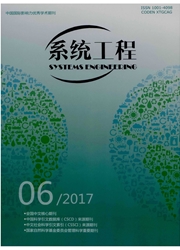

 中文摘要:
中文摘要:
近年来,随着世界能源价格的上升,以及环境问题的加重,能源税制及其改革日益受到各国重视。本文建立了中国能源财税政策决策模型,以期科学确定国家应采取的最优能源税收实施方案。该模型以系统动力学方法为基础,综合分析资源环境、投资决策和能源经济各系统之间的相互作用关系,着重研究国家能源财经税收政策对能源战略目标的支持作用。研究表明:以中国交通领域能源消费为对象,在实施年度最优减排目标后,相应能源税率从2005年的28%提高到2011年的41.2%,并逐渐回落至2020年的32.9%;含税原油价格升至2020年的1548.72USD/T,交通用能消费总量和CO2排放量提高到319.6MT和965.7MT,但仍比照理论排放量下降了13.48%。结论对于未来设计能源可持续财经与税收政策具有指导意义。
 英文摘要:
英文摘要:
In recent years, energy prices continue to be rising. To increase the efficiency of exploiting energy resources and hit the target of implementing optimum energy tax rate scheme, this paper brings forward an analytical method of tax policy research on sustainable energy for Chinese transportation sector based on System Dynamics by taking energy price, interest rate, energy tax rate and energy-saving marginal cost into consideration, aiming at finding out how these factors influence the willingness to invest of energy-saving program. The research indicates that the energy tax rates for transportation energy consumption will increase to 41.2% in 2011 from 28% in 2005 and reduce gradually to 32.9% in 2020, considering the optimum energy-saving target to reduce 5% each year from 2005 to 2020. The tax-inclusive price of crude oil will increase to 1548. 72USD/T in 2020. The gross transportation energy consuming and relative CO2 emissions will increase to 319.6MT and 965.7MT. The conclusion will guide the design of future finance and tax policy on sustainable energy.
 同期刊论文项目
同期刊论文项目
 同项目期刊论文
同项目期刊论文
 期刊信息
期刊信息
